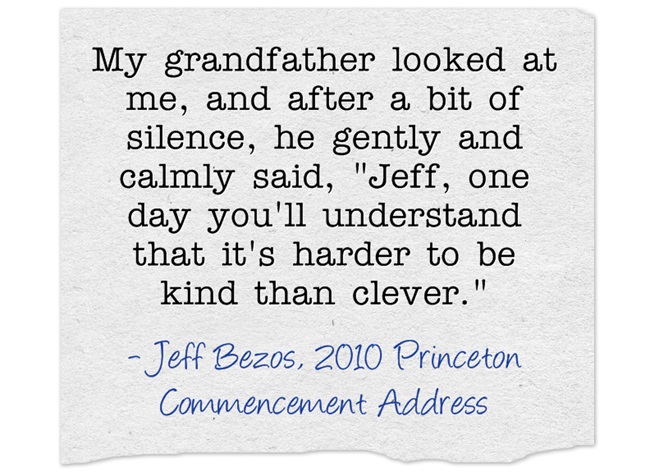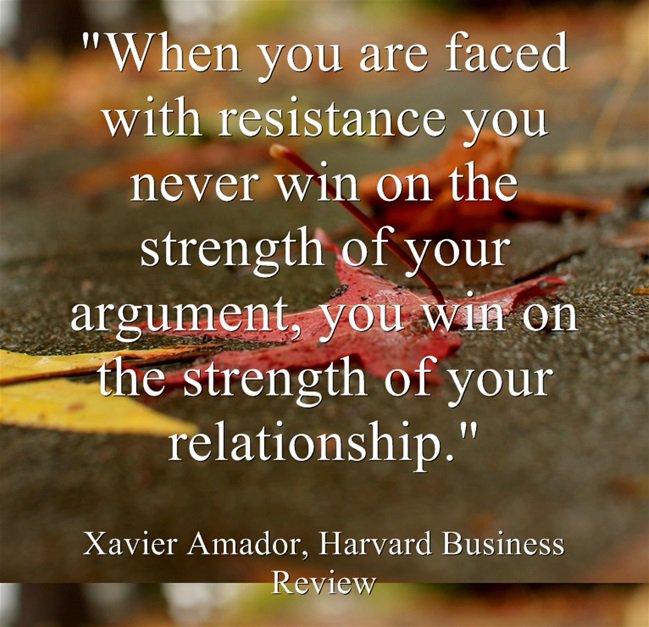 Photo Credit: Scoopnest
Photo Credit: Scoopnest
Quite remarkably, I recently came across several articles on kindness, of all things, in the Harvard Business Review. It was thrilling for me to see it commended as a business process in such a prestigious journal. I have loved the idea of kindness since early childhood. It seemed such a reasonable choice in dealing with others, much more pleasing than cleverness. [Now, if I were more clever, then it might have proved a harder choice.]
Although we were not in church as young children, my mom taught us the Disney form of kindness: “If you can’t say something nice, don’t say nothing at all.” – from the film Bambi.
When we, later in my childhood, became involved in a church community, I discovered the great teachings of God about kindness, which further stoked my resolve. Whenever possible, acting in kindness was the right choice…in personal relationships and in the workplace.
These days, in tight-knit tribal leadership and competitive companies, kindness is too often sacrificed for the bottom-line. You can imagine how refreshing it is for me to see that business thinkers and strategists are taking note of the profitability of kindness as a process – both internally (organizational human relations) and externally (marketing). A work culture of strategic, intentional kindness – just think of that!
If you go to Harvard Business Review’s website and search the word kindness, all sorts of articles pop up. I was most intrigued by Bill Taylor’s pieces on “kindness over cleverness”. He is the founder of Fast Company magazine and author of Practically Radical. He tells stories of companies who have been successful in practicing kindness strategically. He is inspired by Jeff Bezos’ experience growing up with a wise grandfather who taught him to choose kindness over cleverness. That story is told by Bezos himself in the TED Talk (linked below). Photo Credit: National Education Policy Center
Photo Credit: National Education Policy Center
If we wanted to take individual (and corporate) kindness up several notches in our workplace and workforce, what would those processes be? What would we have to give up in order to raise employee satisfaction to such a level that it extends to product excellence and customer service? For leadership, it might be giving up some control and extending a kinder and wiser empowerment, For employees, it might be giving up a timid fatalism and risking a kinder boldness (less of “the great Oz” scenario). I would love to hear what business processes you have in place that celebrate kindness over cleverness. What kind of work culture does your leadership model and cultivate? What can you do yourself, whatever your leadership culture is? See Matt Monge’s article on leading without a title. [Please share in Comments section below.]
We have a choice, after all.
I hope to write more about this because it is intriguing to me how our own delight in our work and product can pour over into our profitability and success.
For today, I close with some of my favorite quotes from these Harvard Business Review articles: Photo Credit: Larry Ferlazzo
Photo Credit: Larry Ferlazzo
“Kindness has a strategic role to play, especially when it comes to winning over customers in an intensely competitive and slowly recovering economy.” – Jeffrey F. Rayport
“Success today is about so much more than just price, quality, reliability – pure economic value. It is about passion, emotion, identity – sharing your values.” – Bill Taylor
Success is not just about marketing differently from other companies…It is also, and perhaps more important, about caring more than other companies — about customers, about colleagues, about how the organization conducts itself in a world with endless opportunities to cut corners and compromise on values…You can’t be special, distinctive, and compelling in the marketplace unless you create something special, distinctive, and compelling in the workplace. How does your brand shape your culture? How does your culture bring your brand to life? – Bill Taylor
“What is it about business that makes it so hard to be kind?” I asked at the time. And what kind of businesspeople have we become when small acts of kindness feel so rare? …By all means, encourage your people to embrace technology, get great at business analytics, and otherwise ramp up the efficiency of everything they do. But just make sure all their efficiency doesn’t come at the expense of their humanity. Small gestures can send big signals about who we are, what we care about, and why people should want to affiliate with us. It’s harder (and more important) to be kind than clever.” – Bill Taylor
“Compassion is a great equalizer. When you approach others with genuine concern for their well-being, your standing in the organizational hierarchy is less of a barrier to a productive conversation…Kindness, in other words, is rarely inappropriate.“ – Allison Rimm
Is Kindness a Strategy? – Jeffrey F. Rayport
Brand Is Culture, Culture is Brand – William C. Taylor
It’s More Important to Be Kind Than Clever – William C. Taylor
Why Is It So Hard to Be Kind? – William C. Taylor
10 Ways You Can Show Leadership Without a Title – Matt Monge – The Mojo Company
To Guide Difficult Conversations, Try Using Compassion – Allison Rimm
 Photo Credit: Larry Ferlazzo
Photo Credit: Larry Ferlazzo

Thanks so much for including my post!
Thanks for commenting. You are such an encourager. Appreciate you’re sharing wisdom to help us make a better workplace for where we spend much of life. I read everything you write. Thanks!